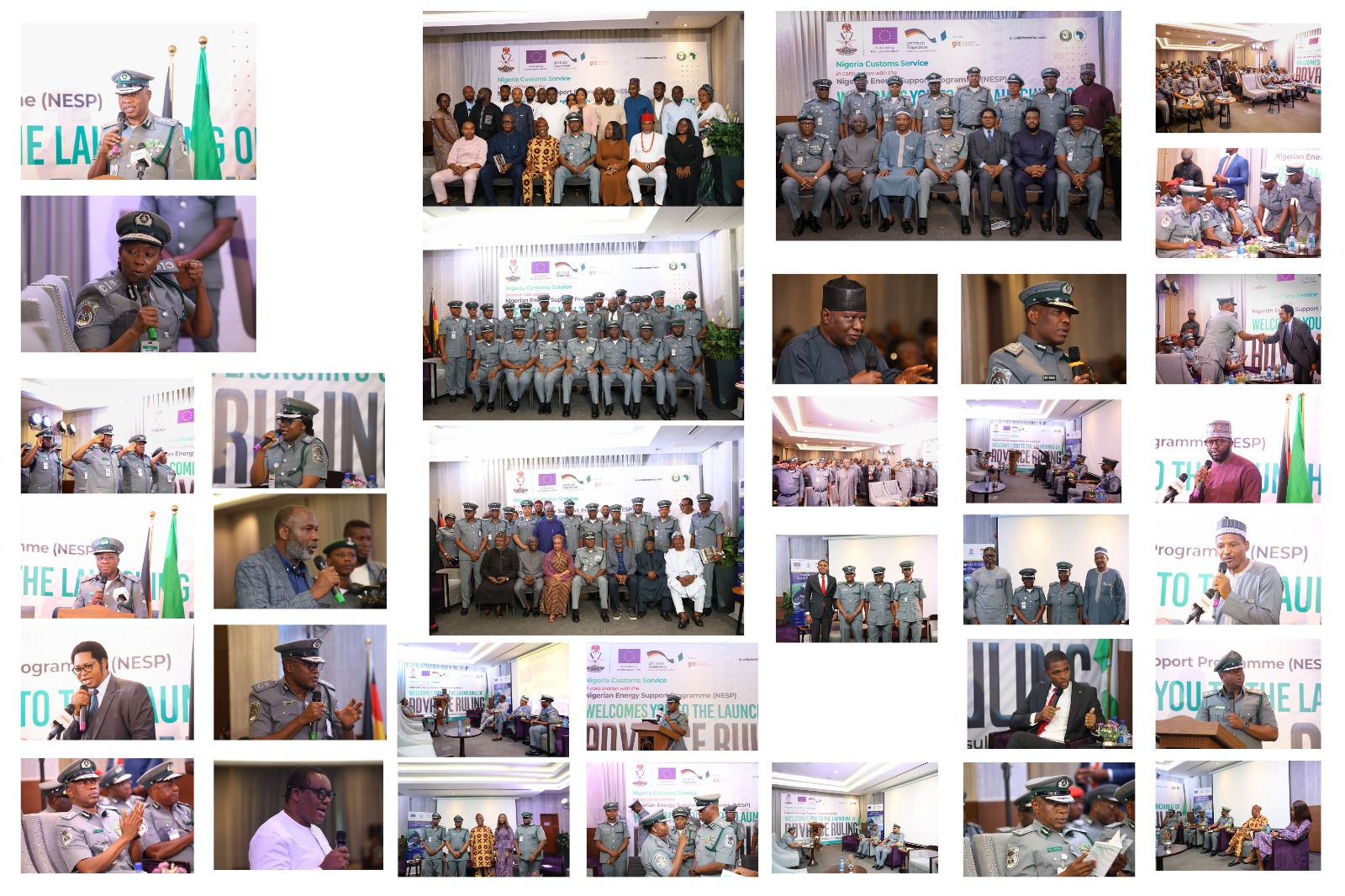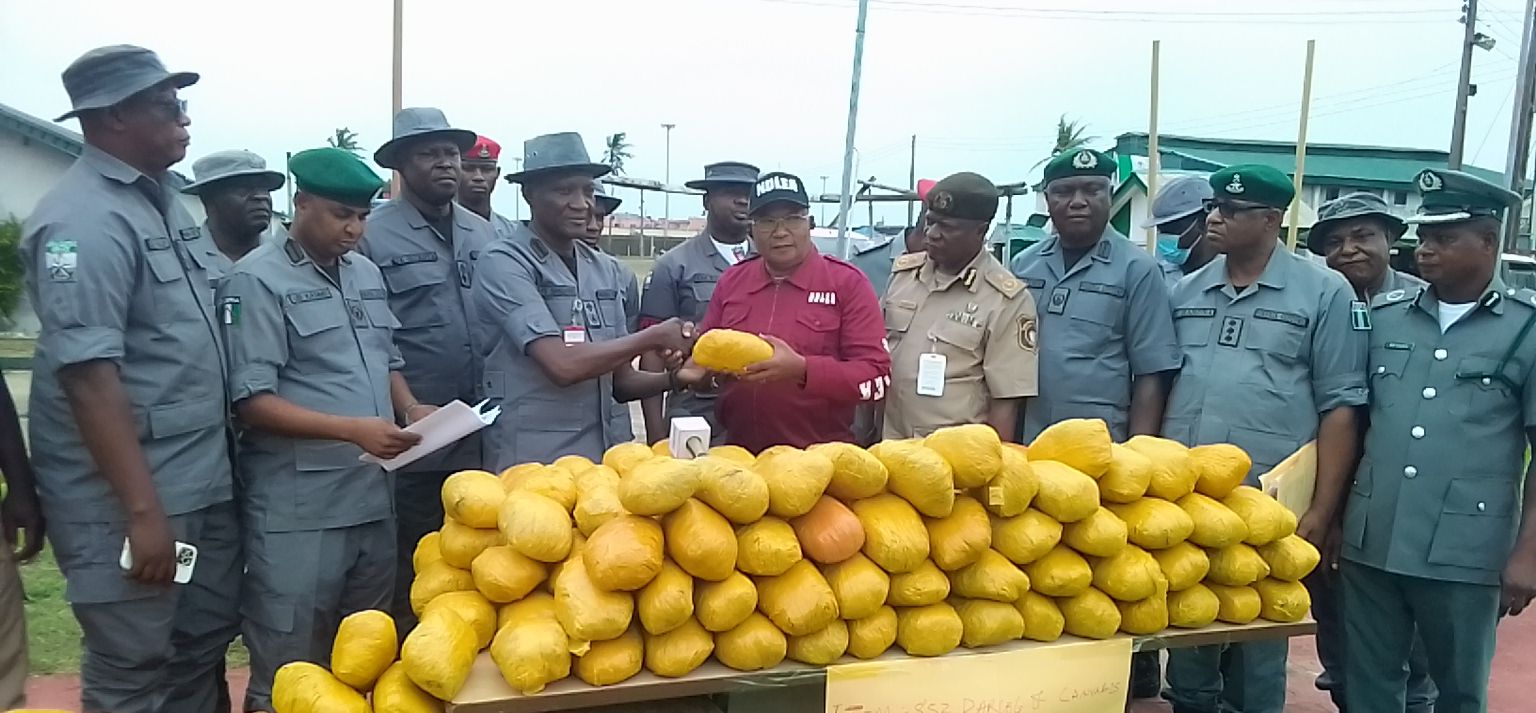Finance
Nigeria Largest Refinery ‘s Plan – NY Times Report

Nigeria Largest Refinery ‘s Plan – NY Times Report
Nigeria Largest Refinery ‘s Plan – Mr. Dangote is building a $12 billion oil refinery on 6,180 acres of swampland that, if successful,— could transform Nigeria’s corrupt and underperforming petroleum industry. It is an entrenched system that some say has contributed to millions languishing in poverty and bled the “giant of Africa’’ for decades.

CAPTION: Nigeria Largest Refinery ‘s Plan – Construction workers at the Dangote Oil Refinery, which is being built on the outskirts of Lagos, Nigeria. The $12 billion project is planned as the world’s largest refinery. CreditCreditAkintunde Akinleye/Reuters
It is here in this vibrant metropolis of 21 million people that Africa’s richest person, Aliko Dangote, is undertaking his most audacious gamble yet. Planned as the world’s largest refinery, Mr. Dangote’s project is set in a free-trade zone between the Atlantic Ocean and the Lekki Lagoon, an hour outside the city center. The site employs thousands, and upon completion — Mr. Dangote says in 2020; some analysts suggest more likely in 2022 — should process 650,000 barrels of crude oil daily.
That’s enough oil to supply gasoline and kerosene to all 190 million Nigerians and still have plenty to export. By the end of this year, the facility is expected to churn out three million tons of fertilizer. The production of diesel, aviation fuel and plastics will then follow.
“The construction site is already a huge beehive of activities, with workers, local and foreign, hard at work. It is going to be the largest manufacturing plant of any sort in Lagos,” said Kayode Ogunbunmi, the publisher of City Voice, a Lagos daily newspaper and lifelong Lagos resident.
READ MORE
- Nigerian Crude Oil now Preferred over Russian by Poland
- Nigeria & Other African Countries to Attend TICAD 7
- Eye Opener: Working African Global Trade Wars to its Advantage
Indeed, some 7,000 employees are working around the clock on the site, many arriving by private ferry from the city center. Another 900 Nigerian engineers and technicians are being trained abroad for jobs at the refinery. Mr. Dangote, whose net worth is estimated at $11.2 billion, has had to build a port, jetty and roads to accommodate this project, along with new energy plants to power it all.
Nigeria’s government, despite being a longtime crude oil exporter, has four underperforming and frequently broken down refineries with a combined capacity of 445,000 barrels daily. Those refineries — two in the oil hub of Port Harcourt, one in Warri in the Niger Delta, and the other in the northern city of Kaduna — are all operating at less than 50 percent of capacity.
Which means that even though Nigeria is Africa’s largest oil producer, petroleum for everyday use must be imported. This has spawned fuel importers and diesel traders who have grown extremely wealthy. Nigeria’s government subsidizes fuel imports to keep pump prices low, and this has contributed to Nigeria’s well-documented culture of petroleum industry corruption.
“The failure to produce refined products over the last 25 years has created a huge architecture of graft and corruption around everything,” said Antony Goldman, the co-founder of the London-based Nigeria specialists ProMedia Consulting.
STILL ON Nigeria Largest Refinery ‘s Plan – NY Times Report
Mr. Goldman does political risk analysis in West Africa and has been working in and out of Nigeria for two decades. Corruption, he explained, stems from illegal refineries and the local criminal network that helps transport illegal crude out of the country. Both elements, he said, have not been sufficiently challenged by the government or law enforcement agencies, which has further contributed to Nigeria’s entrenched oil industry corruption.
“A refinery that actually works and can meet Nigeria’s refined product requirement? It’s a game changer,” Mr. Goldman added. But change, no matter how positive, is potentially destabilizing. “These are not people who relinquish things without a fight,” Mr. Goldman said of Nigeria’s fuel import merchants.
READ THE FULL STORY HERE
ADVERTISEMENT

ADVERTISEMENT
Customs Corner
Nigeria Customs Launches Advance Ruling System for Effective Trade Facilitation

Author: Muhammad Bashir.
The Nigeria Customs Service (NCS) has, in conjunction with the Nigerian Energy Support Programme (NESP), launched an auspicious scheme aimed at enhancing trade facilitation and creating a more transparent business environment for the Service’s stakeholders in trade space, named Advance Ruling.


Speaking at the venue of launching the project on Thursday, 2nd May 2024, at Envoy Avenue in Abuja, Comptroller-General of Customs Bashir Adewale Adeniyi described ‘Advanced Ruling’ as a critical mechanism that allows traders to obtain binding decisions from Customs administrations on the classification, origin, and valuation of goods before importation.
Appreciating the stakeholders and partners for gracing the event, CGC Adeniyi emphasised that the launched project will also serve as a tool for reducing compliance costs and fostering a conducive business environment for traders.
He said, “Today, we shall be taking the first step towards launching the Nigeria Customs Service Advance Ruling, starting with stakeholder engagement.”
The CGC, who recognised the significance of the project, as it aligns with the World Customs Organization (WCO) and the World Trade Organization (WTO), also emphasised its relevance in facilitating both domestic and international trade while also promoting Customs compliance.
“According to the WCO and the WTO, Advanced Ruling enhances predictability and transparency in customs procedures, streamlining trade processes and minimising delays, uncertainties, and costs associated with Customs clearance.” CGC Adeniyi added.
Commending President Bola Ahmed Tinubu for laying the ground to enhance the economy of Nigeria and supporting the Service, CGC Adeniyi emphasised that the launch of Advanced Ruling at this time aligns with the policy directive of President Tinubu’s administration to facilitate trade for legitimate traders.
He highlighted, “This is reflected in the Policy Advisory Document of the government, which signifies recent achievements, such as the approval to decongest the ports and make them free and accessible for importers and operators.”
As the Comptroller-General of Customs championed the laying of a foundation for Advance Ruling to enhance trade in Nigeria, he revealed that the Service has made all arrangements to conduct workshops and sensitisation sessions at Customs Area Commands to ensure that all stakeholders are well-informed and prepared to utilise this new mechanism effectively.
He, however, applauded the German International Cooperation Agency (GIZ) and other partners for their unwavering partnership and continued support of achieving a significant milestone in trade facilitation activities under the Nigeria Energy Support Programme.
“It is essential to acknowledge that initiatives like Advanced Ruling necessitate investments in capacity building for both officers and stakeholders. We are committed to leveraging our internal capacity while exploring collaboration opportunities with external partners like GIZ.” He said.
Customs Corner
Comptroller Chana Re-echoes Commitment to Implementing Government Policies in Kano Free Zone

Author: Vivian Daniel.
The Customs Area Controller of Kano/Jigawa Command, Comptroller Dauda Chana, has reiterated the commitment of the Service to facilitate genuine trade without compromising government policy, especially as they affect special economic areas like the Kano Free Trade Zone.
This was conveyed in a press statement signed on 25 April 2024 by the Superintendent of Customs, Public Relations Officer of Kano/Jigawa Area Command, Saidu Nuraddeen.
The Customs Area Controller, Comptroller Dauda Chana, noted that the government revenue through the operations of the Kano Free Trade Zone is untrue and has strategically positioned Officers to ensure due diligence is carried out in the management of finished products within the zone or from any of the excise factories under its watch.
He stated that those who accused Officers and Men of the Nigeria Customs Service (NCS) of illegalities succeeded in displaying ignorance about the activities of the Service, especially in the areas of Duty, Import and Export processes and the laws guiding trade activities in the Free Trade Zones.
He further emphasised that the Kano/Jigawa Command recorded N613,369,204.81 between January and April 2024, as against N132,436,766.00 in 2023, which indicates an increase in revenue generation.
The CAC seized the opportunity to remind the general public that the Nigeria Export Processing Zones Authority (NEPZA) regulates the zone’s activities.
He added that unless there is an intention of exporting to Customs territory, NCS Officers do not interfere with the Zone as it ensures the prevention of smuggling and duty evasion within all its areas of jurisdiction. According to him, records are always taken for proper duty collection and calculation.
Comptroller Chana reminded that the NCS is not the only government organisation in the Zone while restating that the Command will stop at nothing to adhere strictly to the law and defined rules of engagement.
“In the Free Trade Zone, there are productions taking place, there are manufacturing taking place, and the end product of all these are finished products, and for these to go out, duties are paid.” The CAC noted.
“It is also good for the public to know that goods or raw materials locally sourced are duty-free as well as exportation,” he stated.
The CAC gave more insight into the processes involved during the clearance of goods while exonerating the Officers and Men of the Service of any allegations of connivance with business owners.
“Let it also be on record that the process of clearance involves many stages, and we even have a unit domiciled in every Command that checks after clearance of goods cleared for anomalies, so no officer can connive because the documents are all intact to show what transpired. This makes the allegation of compromise baseless,” he opined.
Customs Corner
JBPT Sector 2 Records Seizures Worth N1.6 Billion Within Six Months

Author: Abass Quadri.
The Joint Border Patrol Team (JBPT) Sector 2, Southwest Zone, has recorded seizures of illegal goods, with a Duty Paid Value of N1.6 billion.
Deputy Comptroller Mohammed Shuaibu in charge of JBPT Sector 2, availed the team’s activities under his stewardship in a press briefing held at Abeokuta on Wednesday, 24 April 2024.

The coordinator noted that the team’s area of responsibilities, which covers all six southwestern states, is mandated to “curbing anti-smuggling activities, channelling of procedures, and combating other cross border crimes that threaten Nigeria’s national and economic security.
“The sector wishes to announce the seizures of illegal goods, which include Cannabis Sativa, secondhand clothings, and means of conveyance smuggled into the country with a Duty Paid Value of N1,663,646,360 and petroleum products valued at N52,486,215 which were auctioned out due to their inflammable nature.”
According to him, the seized goods were recorded between November 2023 and April 2024, adding that “no fewer than 15 suspects were arrested with some charged to court and others prosecuted”.
Handing over the seized Cannabis Sativa at Ogun II Command to the representative of the National Drug Law Enforcement Agency (NDLEA), Deputy Commandant Narcotics Ogun state, Nnyigide Alexander, DC Shuaibu commended the dedication, doggedness and professionalism of officers involved in the interception of the substances which would have caused more security threat.
On revenue generation, the border drill coordinator stated that N36,318,727 was generated through the issuance of Demand Notices (DN) on vehicles and other goods improperly imported into the country.
Receiving the seized Cannabis Sativa, DC Alexander thanked Shuaibu for his hard work, adding that this synergy fulfils the existing Memorandum of Understanding (MOU) between NCS and NDLEA.
In his words, “I feel highly happy that we are doing what we call sister agency collaboration, which has led to the result we have here. I expect to see more in the future because I know they are capable.”
Similarly, DC Shuaibu, who was also on a working visit to Seme and Ogun 1, Idiroko Area Commands, also handed over seized Cannabis Sativa to representatives of the NDLEA at Seme.
-

 Revenue Streams2 years ago
Revenue Streams2 years agoCommunication Ministry Gives Zero Allocation to Nipost Out of N137.2billion Capital Votes
-

 Customs Corner2 years ago
Customs Corner2 years agoCustoms Emerges Champions of 2022, Male, Female National Volleyball Super Cup
-

 Newsroom4 years ago
Newsroom4 years agoNNPC Blames #EndSARS Protests, As Fuel Queues Return
-

 ICT5 years ago
ICT5 years agoFinally! Huawei Launched Harmony OS | Let the Rivalry Begins with AndrodOS
-

 Naija News6 years ago
Naija News6 years agoINEC registers 23 new political parties. YES, RAP, UP, 20 other parties
-

 COVID-194 years ago
COVID-194 years agoVaccine Trials Starts Round The World: All You Need to Know
-

 Customs Corner3 years ago
Customs Corner3 years agoArea Controller, Murtala Muhammed International Airport Command Passes On
-

 Foreign2 years ago
Foreign2 years agoPhilippines’ Duterte Blocks Bill to Register Social Media Users














